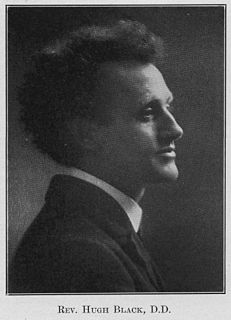A Quote by John Sterling
Enthusiasm is grave, inward, self-controlled; mere excitement, outward, fantastic, hysterical, and passing in a moment from tears to laughter.
Related Quotes
I would not exchange the laughter of my heart for the fortunes of the multitudes; nor would I be content with converting my tears, invited by my agonized self, into calm. It is my fervent hope that my whole life on this earth will ever be tears and laughter. Tears that purify my heart and reveal to me the secret of life and its mystery, Laughter that brings me closer to my fellow men; Tears with which I join the broken-hearted, Laugher that symbolizes joy over my very existence.
Sometimes there are more tears than laughter, and sometimes there is more laughter than tears, and sometimes you feel so choked you can neither weep nor laugh. For tears and laughter there will always be so long as there is human life. When our tear wells have run dry and the voice of laughter is silenced, the world will be truly dead.
Fear begins and ends with the desire to be secure; inward and outward security, with the desire to be certain, to have permanency. The continuity of permanence is sought in every direction, in virtue, in relationship, in action, in experience, in knowledge, in outward and inward things. To find security and be secure is the everlasting cry. It is this insistent demand that breeds fear.
We are becoming able to see the pursuit of external power for what it is and the futility of trying to escape the pain of powerlessness by changing the world. When we look inward, not outward, we can dismantle the parts of our personalities that have controlled us for so long - such as anger, jealousy, vindictiveness, superiority, inferiority.
If happiness is a state of the inward life, we have to look for its chief obstructions not in outward conditions but in deeper places. Happiness depends in the last issue, as we saw, on the essential view of life. It is not a matter of distractions, nor even of mere pleasurable sensations. There may be an appearance of great prosperity with incurable sadness hidden at the heart, as there is an outward peace which is only a well-masked despair. The way to happiness is indeed harder than the way to success; for its chief enemies entrench themselves within the soul.



































